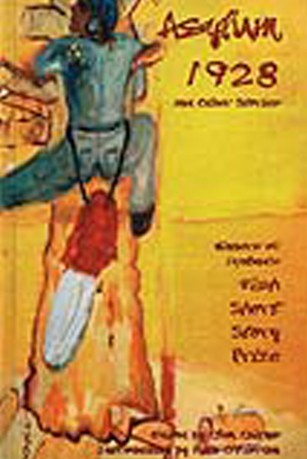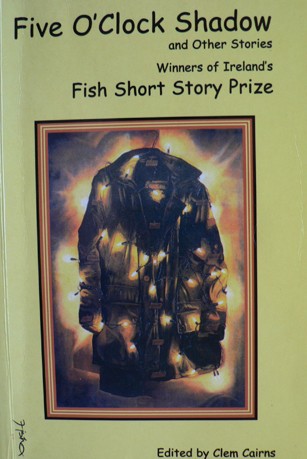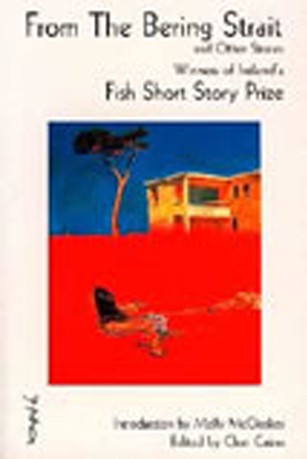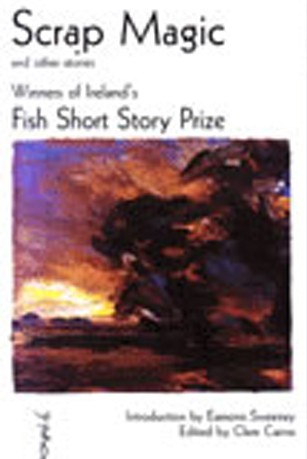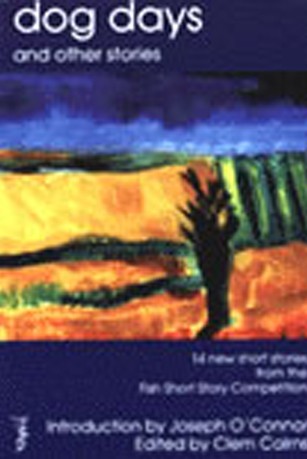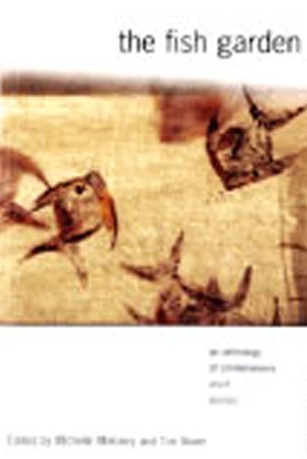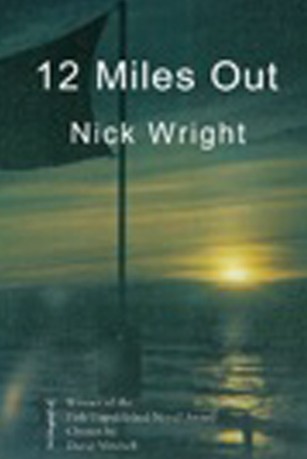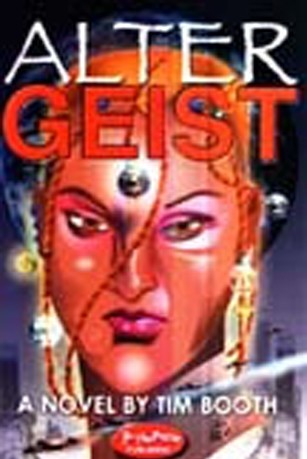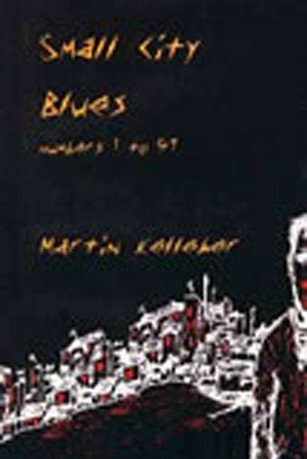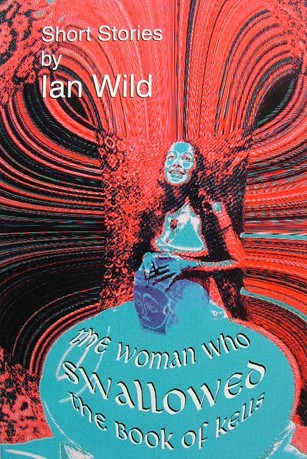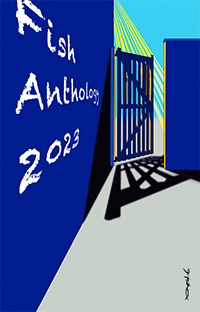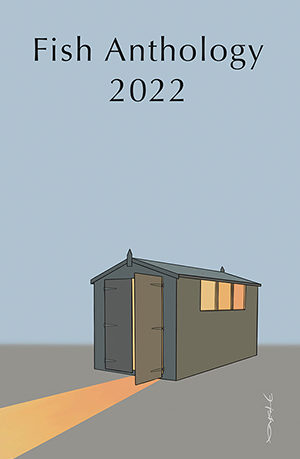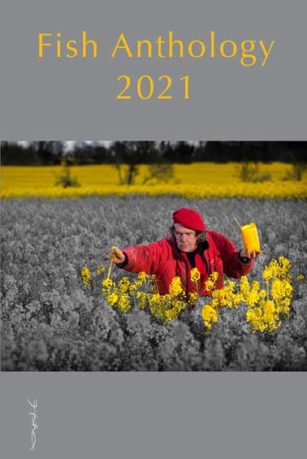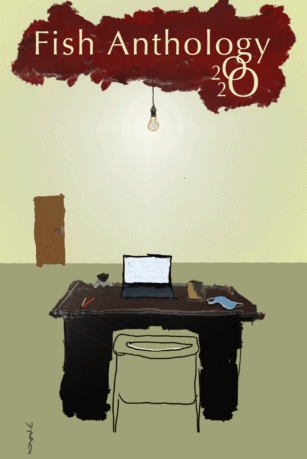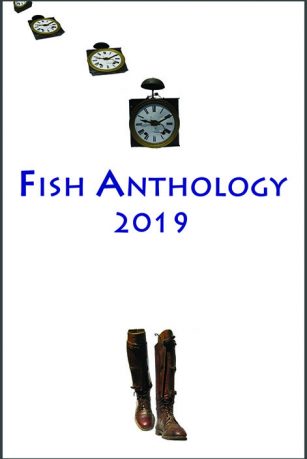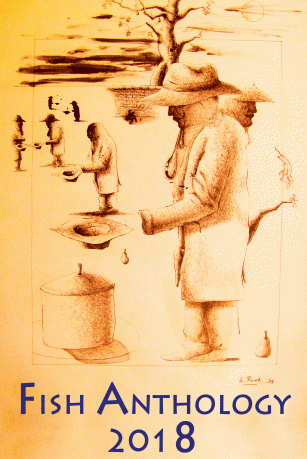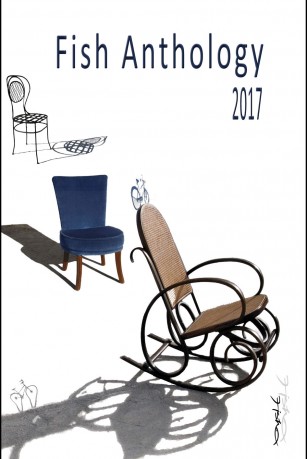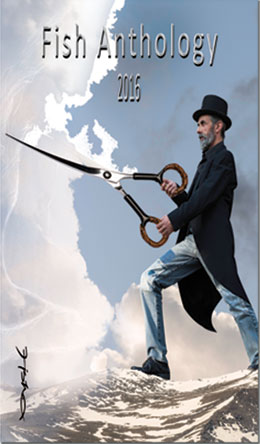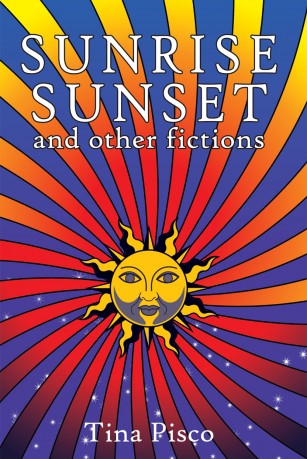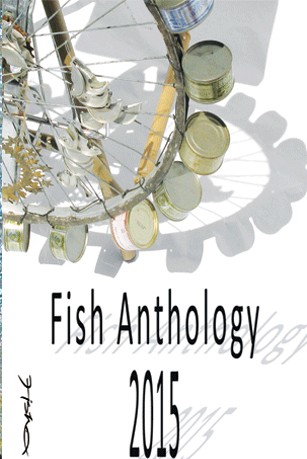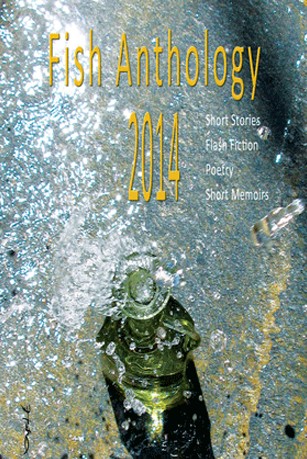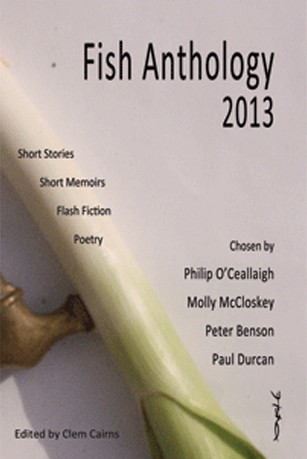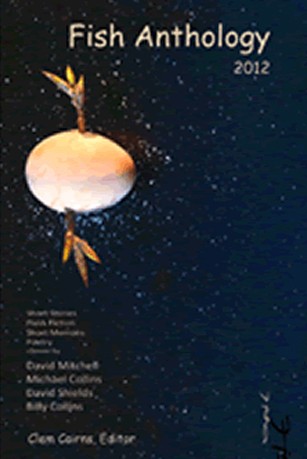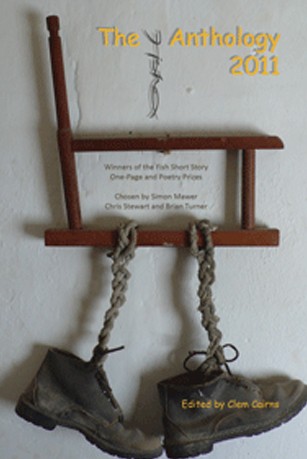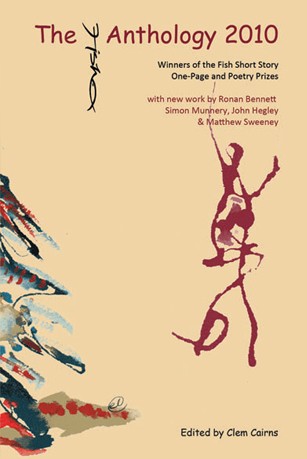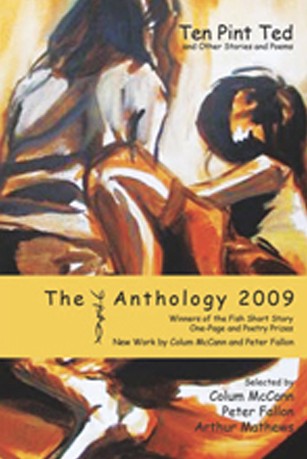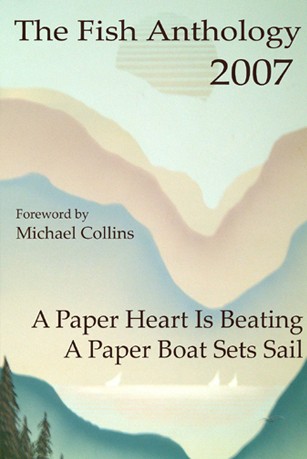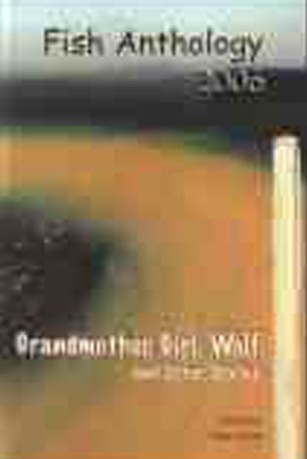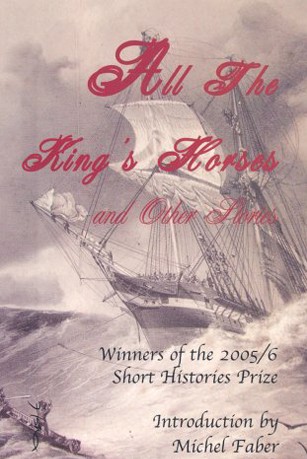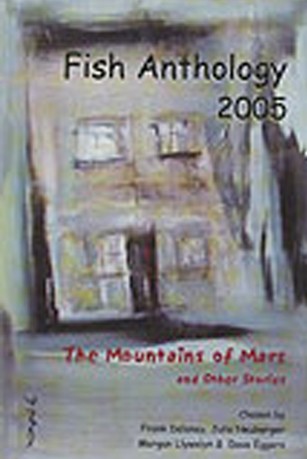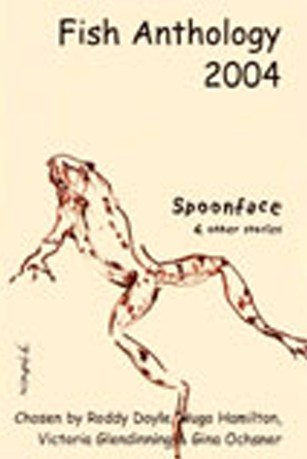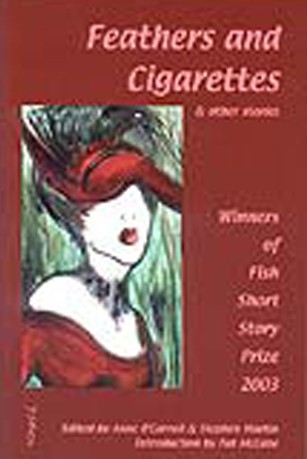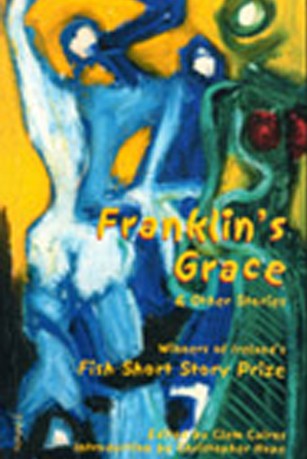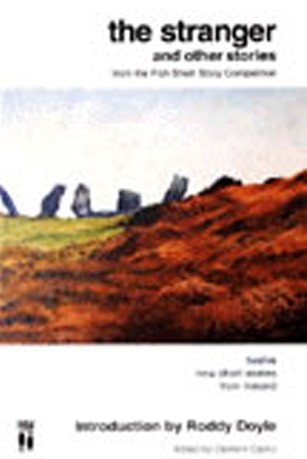
The Stranger
ISBN: 09523522-5-7
Introduction by Roddy Doyle
I remember reading Flann O’Brien’s novels when I was in school and thinking that I’d love to write books like them. Later, I read The World according to Garp and Ragtime; I loved them and felt slightly robbed – I wanted to write those books. I’d always dreamed about being a writer but it was novels I was writing in my dreams.
I read Dubliners. I enjoyed it, admired it but it didn’t start keeping lists of epiphanies. I didn’t want to copy it – Dubliners 2: More Significant Moments. I admired the stories of Chekov but I wasn’t curious about the man. I mourned the death of Raymond Carver because he wouldn’t live to write another novel.
Carver, Richard Ford, Flannery O’Connor, William Trevor – their stories are all on my bookshelf. I love them; I read them again and again. Many of the novels that fill the spaces between them are dreadful. So why don’t I write short stories?
The best reading experience of my adult life was given to me by a short story by Joyce Carol Oates, ‘Upon a sweeping flood’. It was a day in June, 1992, late morning. We were staying in a house in Wicklow, near Carnew. I had just finished the first draft of Paddy Clark Ha HA Ha. My wife and son were asleep upstairs. I was feeling the way I always do just after I’ve completed a piece of work – elated and terrified, giddy. We were into the forth week of our holiday; it hadn’t rained once. I made coffee, tried to calm down. I opened Richard Ford’s American short story anthology and started to read the Oates story.
A man called Walter Stuart, on his way home after a week away arranging for his farther’s funeral, is stopped on the road by a sherriff’s deputy and told to turn back because there’s a hurricane approaching. Instead, Stuart drives straight into the hurricane. Outside, back in Wicklow, it started to rain. ‘The car lunged forward into the rain, drowning out the deputy’s outraged shouts.’ I went with Stuart deeper and deeper into the hurricane as the rain hammered the roof and windows. I wasn’t reading, I wasn’t in Wicklow, my family wasn’t upstairs. I was there with Stuart; Iwas Stuart.
I won’t give the story away – read it yourself – but I was terrified, shattered, wet. I had read the last sentence -‘He had waded out a short distance by the time the men arrived.’ – when I heard waking up noises from upstairs. Did it stop raining? No. It pissed down for another three days.
Joyce Carol Oates, my family, the weather, my state of mind – they all got together to give me this incredible hour’s reading. ‘Upon the Sweeping Flood’ is a great story in a collection of great short stories. So why don’t I write stories?
Because I can’t I’ve tried but I can’t write them. There’ll never be a collection of Roddy Doyle short stories. I’ll never write poetry and I’ll never play for Ireland. I’ll never make my own furniture. I’ll never be able to do any of these things. I could defend myself; I could insist on the the superiority of the novel – the honesty of the novel. I could sneer at the short story, especially the Irish short story – I could put the word ‘theme’ in italics so we could all laugh at it. (‘Right, lads, take this down. All of you. the themeof this story is. That the seagull has to be cruel. C,r,u,e,l. To be kind . . . Stop talking back there.’) I could say that I don’t write short stories because I couldn’t be bothered writing short stories. But really, I’d love to write short stories but I can’t. It’s as simple as that.
The writers in this collection can write short stories. When I read the stories the first time I had no names, ages, sexes – just the stories themselves on A4 sheets. They made very refreshing reading. There were no biographical hints, no blurbs or endorsements. Just the words and the stories. I was surprised at the variety. The stories came from different worlds. Their quality seemed to be the only thing they had in common; they were all gripping and very, very good.
In Eamonn Sweeney’s ‘Mama Don’t Let Your Babies Grow Up tp Be Cowboys’ we’re dragged into a nightmare by the narrator, a young man on the run. This kid is coming out of a grim past, heading into a worse future, stuck in a dreadful present. The story is disturbing but also very funny. ‘In the pitch dark on your own you think of your mother.’ The story’s world is fantastic but real, and very very Irish. ‘We asked for three pints of Heinekin. We got three pints of Harp.’ I know that pub.
Malachy Doyle’s story, ‘Georgie’, is chilling and very moving. Narrated by another young boy, this time there is no humour to make the nightmare enjoyable. The simple words bring us closer to the pain, and his hope. ‘I stood up. Held his hand. Walked out the door.’ I was afraid to read on, afraid for him. This is a powerful story.
‘Broken Teapots’, by Suzanne Power, is the story of an unusual friendship, told by a marvelous narrator. ‘I despised most things, but mostly my family and the street.’ The story is full of sentences like that one. The friends are pushed together by the street, ‘forty tight, terraced houses’. The ending is inevitable but the narrator takes us there by a fasinating route. It’s a bleak story, but the narrator smashes her way through it, a mass of strength, hope and humour.
‘Louis and Louise’, by Marie MacSweeney, gives us Louisa, a woman on her fiftieth birthday, a woman whose husband is away, roaming ‘the open savannas of the world, prowling . . . often howling for sex.’ She’s fairly howling herself as she heads off to celebrate alone. It’s a sad, cruel story with a Louise Armstrong soudtrack and a dark, dark sense of humour.
‘My farther’s farther died when he was eighteen and in that time my farther can only remember speaking to him twice.’ This great sentence comes from Rosa Moore’s story, ‘Mother, Father’. It’s a story about identity, Irishness. The child of a Swedish mother and a Irish father, the narrator is trying to put some solid ground under her feet. ‘ . . . my parents once lived here, my mother worked in that factory there. It pleases me to know that and to be able to say something definite.’ It’s a slow, wise story, full of terrific writing.
Mairide Woods’ ‘Slow train to Momma’ is also full of great writing. ‘”You still reek of that place,” you say, when I came home from after the miscarriage.’ There isn’t an empty space in the story; every sentence demands our attention and admiration. It’s a funny, gentle, wonderfully real story. Mairide Woods makes familiar things sparkle. ‘He grumbles about his job the way he used to grumble about the Fruit and Nut. He says now he always preferred Aero.’ We’ve all heard that grumble.
‘Virtuoso’, by Conor Farrington, is a delightfully macabre story, very cleverly written. ‘I often wish I lived in the last century,’ says the narrator, a young pianist. The formality of the plot and language, the strict, straight-backed characters, do seem to bring us back to the lat 1800’s. But modernity creeps in: the student pianist cycles an exercise bike with his hands and arms. A tale of rivalry and obsession, ‘Virtuoso’ is both convincing and wonderfully melodramatic.
‘Small City Blues No. 35: Love at the End of the World’, by Martin Kelleher, is a very carefully balanced story; it manages to be angry, funny and chilling. Tracey Boy has just been laid off and is walking home. He doesn’t get the usual bus: ‘How the set route, it’s normality, would mock him.’ He is ‘an ugly man with silent cash’, and he starts following a woman. He imagines her face, the details of her home – there is a Betty Blue poster on the wall; he loves her. It’s a disturbing walk; I was afraid to read on. He worries about her – ‘Was there some nut behind her?’ He has the opportunity to seize her – ‘Just to show that he could, nothing more.’ Finally he crosses the road and goes ahead. ‘It was finished.’ This is a memorable, worrying and strangely gentle story. ‘ . . . by the following Thursday his money would be gone and the world, even the universe, would have shrunk to the size of a cage.’
‘The Catherine Wheel’, by M. Suzuki Hawkes, gathers four daughters together at the approaching death of their mother, four women ‘brittle in the outrageous humour they adopted to cover their fear’, Other family members arrive. ‘Long hours were spent each evening around the dinner table.’ One daughter’s fiftieth birthday is celebrated with the childhood meal of eggs, beans and corn. Then, the death; a party instead of a funeral, a party to celebrate their mother’s ‘wit and outrageousness, fury and passion’. A simple toast – ‘To Mum’ – and fireworks. They watch the fizzy circling of a Catherine wheel, it’s spluttering and death. ‘Her daughters, catching hold of one another’s hands, smiled into the darkness.’ This is a warm, moving story, a very successful celebration of dignity and love.
In Angelle N. Guyette’s ‘The Island Chasers’, two childeren try to escape to Canada. They are floating on rafts on Lake Erie. Behind them, on the beach, are their parents, about to be divorced. In front of them is Canada. The story captures the children’s powerlessness, anger, guilt. ‘I tried everything,’ says Ames, the older child; ‘I’ve been keeping my room clean and doing the dishes without being told . . . There’s no fixing what I did before.’ It’s a heartbreaking moment in a small, powerful story.
Finally, ‘The Stranger’, by Molly McCloskey. ‘When Frederick turned thirty-eight, he realized he was fat.’ Frederick is married to Julia. He has fits of crying. He stumbles into an affair with Beth, ‘a very nice, warm, lonely thirty-six’. ‘He feels thin and confident again’ but after making love, ‘he feels arbitary . . . and more than a little foolish.’ The story’s attention turns to Julia. One night she follows Frederick. She watches him meet Beth. ‘Frederick is like a stranger she is dying to meet.’ This is a very polished complete story. It delights in the mundane ghastliness of growing old. (‘You’re losing your hair, you know.’ ‘Thank you.’) Behind the story’s polish, there is a real affection for the characters. Frederick, Julia and Beth are great creations, totally believable. There isn’t a word that jars or a detail that seems out of place. ‘The Stranger’ is a marvellous short story.
Writing about these stories has made me want to read them again. I look forward to reading more of the work of these ‘new’ authors. Short stories, novels, poetry – I’ll take anything – diary pages, shopping lists – just give me more.
Roddy Doyle
Dublin, 1996
Contents
The Stranger by Molly McCloskey
Broken Teapots by Suzanne Power
The Catherine Wheel by M. Suzuki Hawkes
Georgie by Malachy Doyle
Virtuoso by Conor Farrington
Love at the End of the World: Small City Blues No. 35 by Martin Kelleher
The Island Chasers by Angelle N. Guyette
Slow Train to Momma by Máiríde Woods
Mama Don’t Let Your Babies Grow Up to Be Cowboys by Eamonn Sweeney
Louis and Louise by Marie MacSweeney
Mother, Father by Rosa Moore
Footballics Anonymous by Breda Nathan


